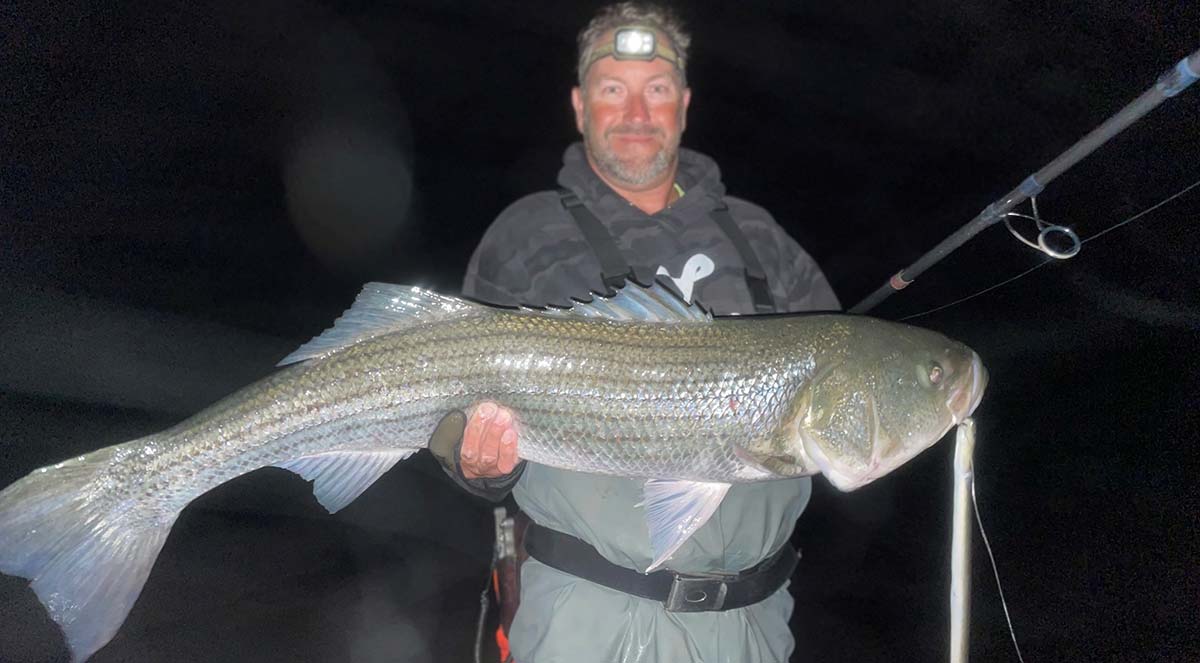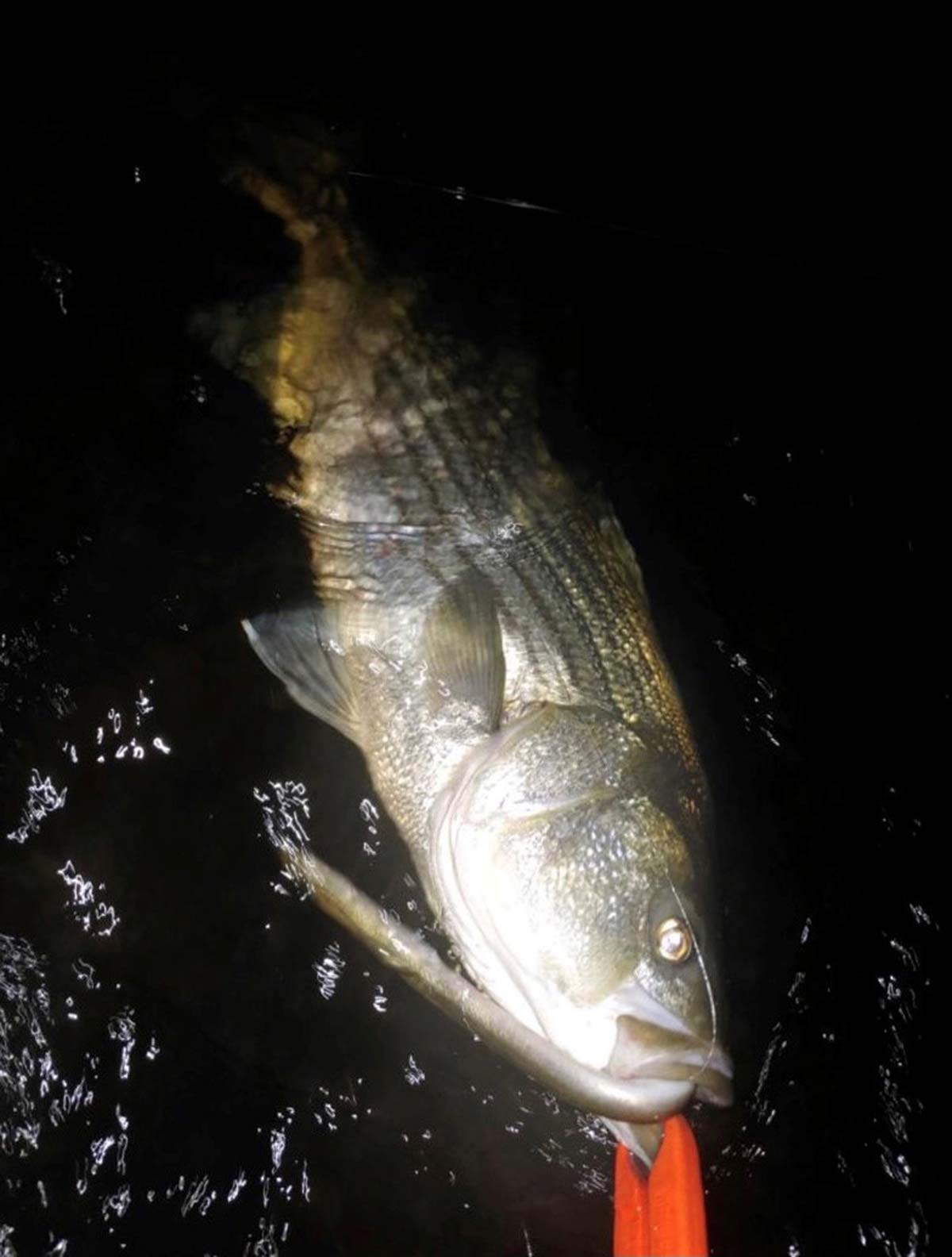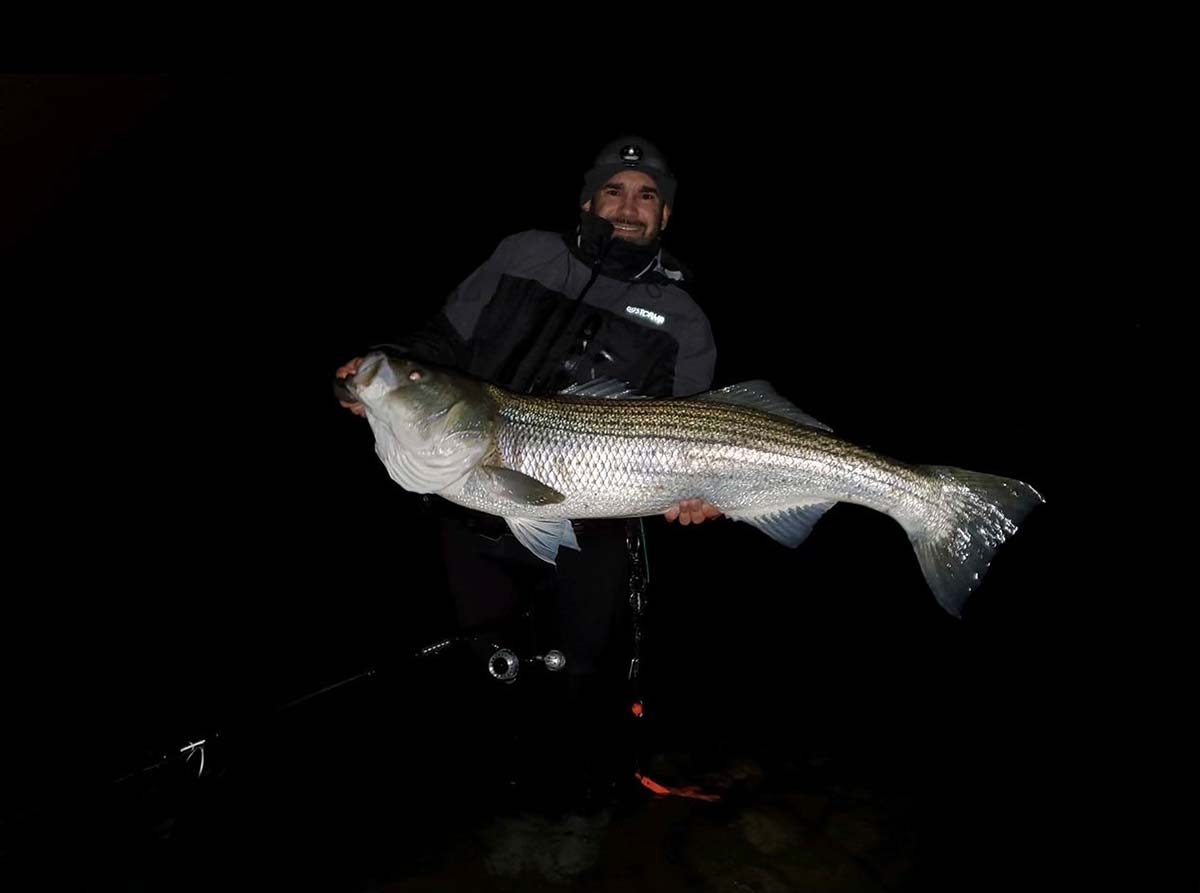
Sometimes the best fishing, is right at your doorstep.
Regardless of where you fish for stripers along the Northeast coast from Maine to New Jersey, September marks a turning point in the season. Although fishing is not even close to being over, we begin to reflect on the season up to that point and refocus for the fall run.
The days grow shorter, nights colder, and the question, “are the year’s best days of fishing now behind us?” weigh heavily on the minds of surfcasters throughout the region. Our fishing efforts of the spring and summer seem like distant memories as we make the final push to be there for those last waves of good fish.
As surfcasters in New England, more specifically Cape Cod and Rhode Island, the arrival of September can cause ‘information overload’ as reports pour in from sources all over the map. While this information can be helpful, it can also cause you to second guess your gut, making it very hard to feel 100% confident choosing a spot to fish. If you’re like me and you prefer to hunt stripers without waiting for “the call” or do most of your fishing alone, this is for you. Most of the time I can ignore the reports and stick with my game plan, but sometimes FOMO (fear of missing out) kicks in and the thought of guaranteed fish becomes very alluring. All too often when I give in to FOMO, I’m late to the party and miss the bite.
In September and October striped bass in the Northeast typically don’t stick around in one location for very long, so being able to predict where these fish are likely to move to next might can make a huge difference for your fall run success. Now with that being said, you don’t always have to travel a long way to find these fish. In fact, one of the best ways I have found to focus myself is to limit myself to drives of 45 minutes or less.
September 17th
My night trips along the boulder fields of Boston’s South Shore and on the sand beaches of Cape Cod Bay weren’t yielding great results. The bite I had been on a week prior had fizzled out. While contemplating my next move, I found myself preoccupied with the small stripers busting on peanut bunker behind my house; I’m very fortunate to live along one of the many estuaries that empties into Buzzards Bay. Before deciding on where my next night mission would be, I couldn’t help myself and decided to gear up and get a line tight during the day, something I find myself doing less and less the older I get.
This estuary is productive in the spring on light tackle; I catch predominantly schoolies, with the occasional slot fish and, if I’m lucky, a 20-pounder. In the fall, it lights up with small stripers, which at this point in my “striper life” I usually pass over for the more mundane activities of daily life. So I made my way down to the water, a 10-minute walk at most, and tried my luck. I can’t remember how many fish I caught that day but 99% of them were schoolies. That other 1%, was a 17-pounder…duly noted.
After the tide died out, I began making plans for the night. A good friend of mine, “Striper Ted” asked if I would like to eel the canal that night which I gladly accepted. The prospect of catching a hog at the canal is always alluring and plus, Its always a great time fishing with “Striper Ted”, he fishes hard, he is very knowledgeable, and most of all, is great company. After a couple hours of drifting eels without so much as a sniff from a striper, my mind began working overtime, trying to think of a new plan. It seemed like every location I thought of was too far away to get to before the tide petered out or the tide just wasn’t right for that night. But, there was one place close by we could try with some tide left before it went slack: the estuary near my house!

Redemption Time
I asked Ted, how he felt about some slot fish redemption? At the very least I assured him, we might catch a slot fish or two. He accepted my invitation and we made our way back to my house where we geared up and made the arduous five minute walk with a bucket of snakes hoping a big schoolie would somehow cure the sickness.
By the time we got to the spot, we had less than an hour of the dumping tide to work with. We began casting our eels into the channel at the mouth of the estuary with renewed energy and optimism. It didn’t take more than a couple minutes before the term “slot fish redemption” would go down in our version of fishing folklore. Without any warning, I heard Ted set into a fish, drag set tightly enough that if you were able to hear it, you knew it was a good fish. The foggy haze and cloud-covered darkness hindered my vision enough that I could barely make out the white water being thrown around by his fish which ended up topping out at 20 pounds. For the next hour we went back and forth hooking into fish after fish with many in excess of 30 pounds!
It was a night I won’t ever forget. And not just because we caught big fish, but because of the overlooked spot so close to where I lived. It blew my mind that, having lived here for 8 years, I never gave this spot a fair shot when the time was right. My mind was always fixated on trying to intercept these fish at the end of a good ride fishing in what I think of as “big fish spots”. It was hard for me to imagine big fish on their southerly migration making a pit stop in what seemed to me to be a relatively benign location. Looking back, and after another season to confirm it, these fish have been coming into this spot the whole time, they were undoubtedly passing right by my doorstep, fueling up under the cover of darkness for their long journey south.

A Learning Moment
I feel like I learned several lessons from this example, the biggest one being not to ignore the most obvious (closest) spots and not to make assumptions based on what you can see in daylight. Also, don’t allow yourself to get too caught up in the idea that a longer ride somehow means you’re more committed to hunting these fish. Lastly, if there is ample bait in an area, it’s at least worth checking out after dark.
We often travel long distances to try and find fish. Unfortunately, for those of us that don’t live near the coast, long trips may be unavoidable. But no matter how far from the ocean you live, there is always a shortest route to the water and I would urge you to get very familiar with that area. Explore it, take notes, and give it a good, honest effort. You might be surprised what you find and you may even find your own version of “slot fish redemption!”




